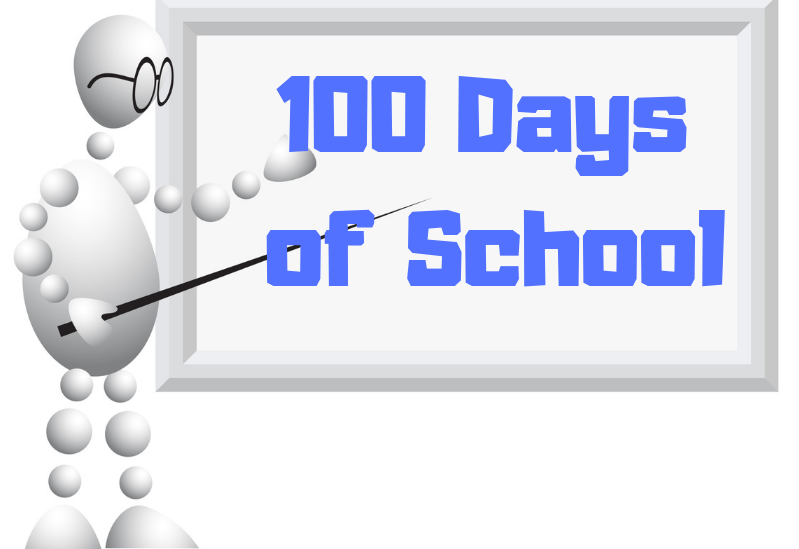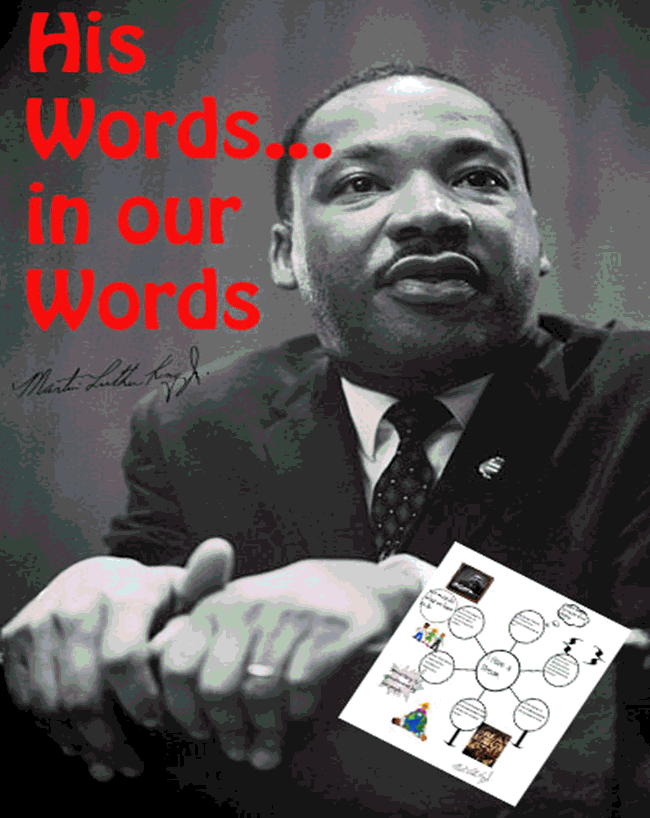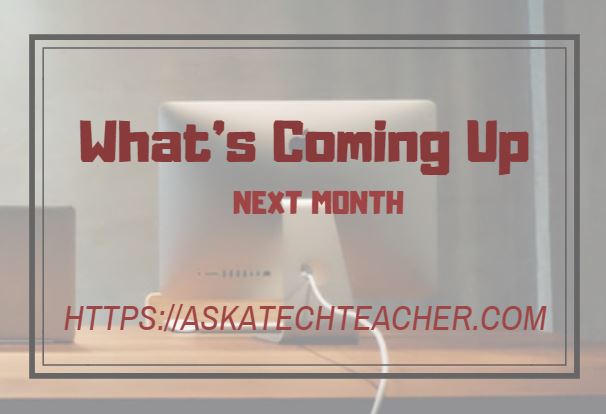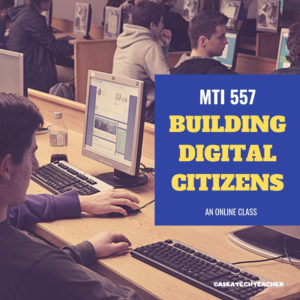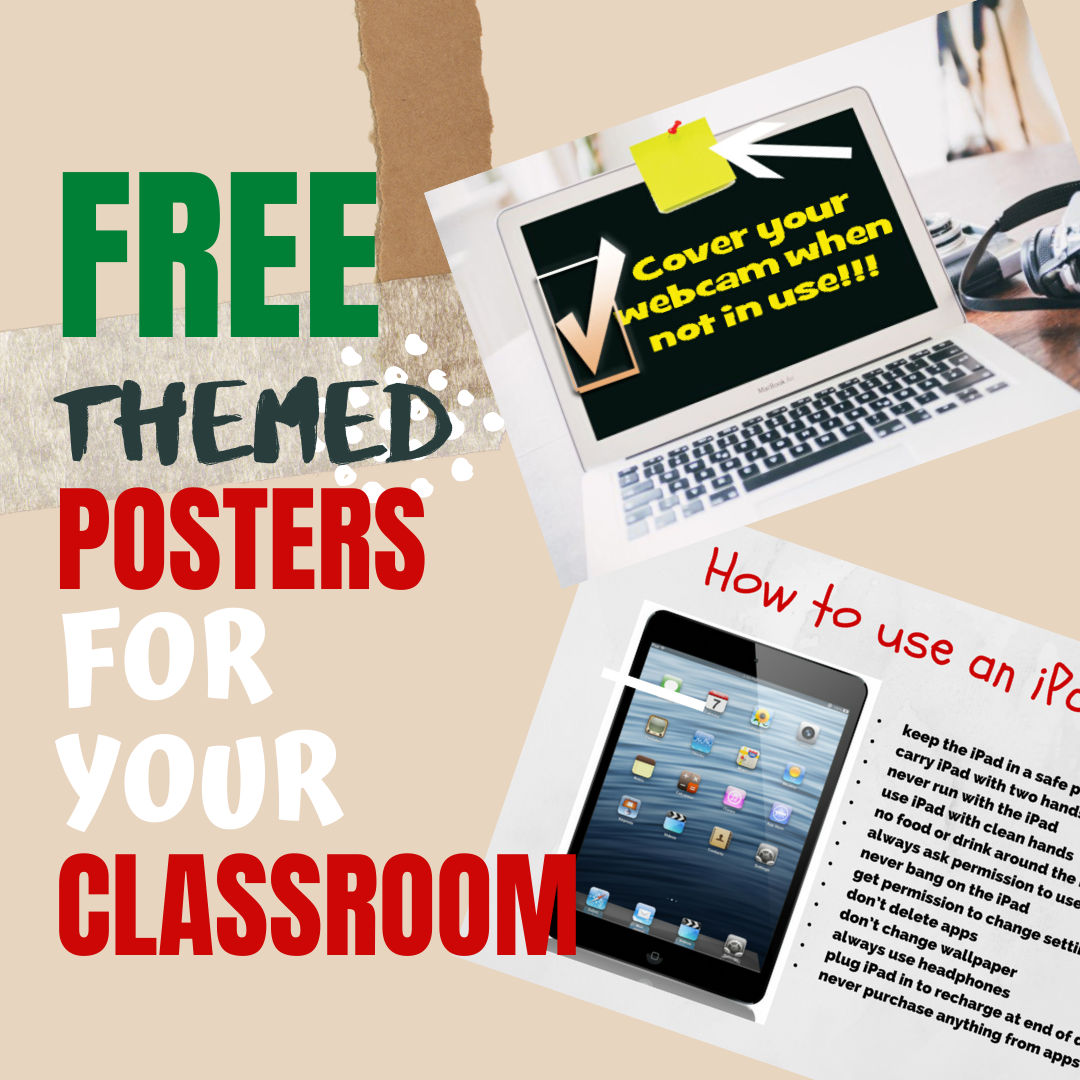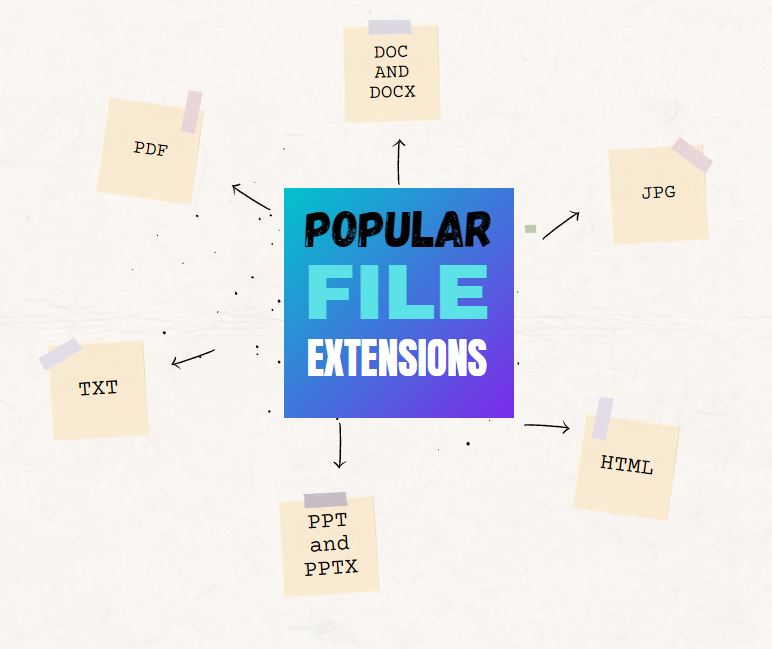Year: 2021
100th Day of School — Make it about Learning
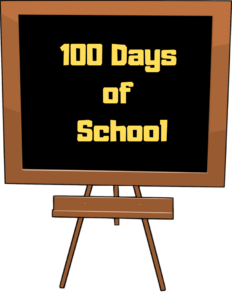 Before becoming a teacher, I didn’t understand why the 100th day of school was a big deal. At first, I thought it had to do with finding something exciting about the dreariness of post-Christmas January but when I counted school days from Labor Day to the hundred-day mark (skipping weekends, two weeks at Christmas and a week at Thanksgiving), that put me in the second week of February. Some colleagues say the 100th Day is a rich teachable moment that revolves around math. One efriend told me it occurs about the time when most kindergarten curricula cover how to count to 100. Others tell me it’s simply a milestone, important to young children and passe to olders.
Before becoming a teacher, I didn’t understand why the 100th day of school was a big deal. At first, I thought it had to do with finding something exciting about the dreariness of post-Christmas January but when I counted school days from Labor Day to the hundred-day mark (skipping weekends, two weeks at Christmas and a week at Thanksgiving), that put me in the second week of February. Some colleagues say the 100th Day is a rich teachable moment that revolves around math. One efriend told me it occurs about the time when most kindergarten curricula cover how to count to 100. Others tell me it’s simply a milestone, important to young children and passe to olders.
How to celebrate
Turns out, the reason doesn’t really matter because celebrating isn’t a problem with kids. They love parties. So I decided to accommodate the 100th Day fever by wrapping it in learning. Here are thirteen activities I like that blend learning into a celebration of the 100th Day of School:
Geography
As a class, come up with two locations in each state, to total 100. One will be oriented around geography and one around history (such as “Kansas became a state January 29, 1861”). Include a brief description and a picture and then share the collection with parents and schoolmates in the class newsletter or another vehicle.
History
Research what happened the hundredth year of your home country’s existence. What was the country like a hundred years ago? What caused it to change? Who was president? What has been invented since then? Divide the class into groups so the project can be completed in one class period. Then, have everyone copy their information to a digital magazine (like you can create in Canva or Adobe) and share it with everyone.
Share this:
- Click to share on Facebook (Opens in new window) Facebook
- Click to share on X (Opens in new window) X
- Click to share on LinkedIn (Opens in new window) LinkedIn
- Click to share on Pinterest (Opens in new window) Pinterest
- Click to share on Telegram (Opens in new window) Telegram
- Click to email a link to a friend (Opens in new window) Email
- More
Subscriber Special: More MLK
Every month, subscribers to our newsletter get a free/discounted resource to help their tech teaching.
Free Martin Luther King Day Lesson Plans
- brief summary of the project
- Essential Question
- Big Idea
- Common Core and ISTE alignment
- materials required
- teacher prep required
- step-by-step instructions
- extensions to dig deeper into the subject
- assessment strategies
- sample grading rubric
- sample project
- resources
Share this:
- Click to share on Facebook (Opens in new window) Facebook
- Click to share on X (Opens in new window) X
- Click to share on LinkedIn (Opens in new window) LinkedIn
- Click to share on Pinterest (Opens in new window) Pinterest
- Click to share on Telegram (Opens in new window) Telegram
- Click to email a link to a friend (Opens in new window) Email
- More
What You Might Have Missed in January
Here are the most-read posts for the month of January
- Classes in Remote Teaching
- 5 (free) Shortkey Posters
- 9 Great Websites to Inspire 3rd Graders
- Ten Most Important Keyboard Keys
- Great Websites for Special Needs
- Edtech Trends From 2020 And Beyond
- Game-based Learning in Remote Teaching
- 5 Fun Science Experiments Kids Do at Home
- Public Domain Day and Happy New Year!
- Top 10 Reviews of 2020
Share this:
- Click to share on Facebook (Opens in new window) Facebook
- Click to share on X (Opens in new window) X
- Click to share on LinkedIn (Opens in new window) LinkedIn
- Click to share on Pinterest (Opens in new window) Pinterest
- Click to share on Telegram (Opens in new window) Telegram
- Click to email a link to a friend (Opens in new window) Email
- More
Here’s a Preview of February
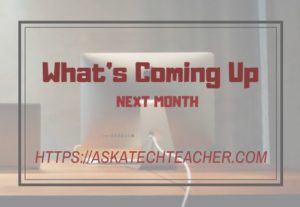 Here’s a preview of what’s coming up on Ask a Tech Teacher in February:
Here’s a preview of what’s coming up on Ask a Tech Teacher in February:
- Subscriber Special
- 100th Day of School Activities
- World Read Aloud Day
- Free Posters
- Why Kindergartners Must Learn Tech
- Math Word Problems
- Shortkeys
- Great Websites for Remote Teaching
- Websites to Enhance Social Studies
- How Fast Schould Kids Type
- Keyboarding Hints
- College Credit Classes for Your PD
Share this:
- Click to share on Facebook (Opens in new window) Facebook
- Click to share on X (Opens in new window) X
- Click to share on LinkedIn (Opens in new window) LinkedIn
- Click to share on Pinterest (Opens in new window) Pinterest
- Click to share on Telegram (Opens in new window) Telegram
- Click to email a link to a friend (Opens in new window) Email
- More
Classes in Remote Teaching
Through the Midwest Teachers Institute, I offer four college-credit classes that teach how to blend technology with traditional lesson plans. They include all the ebooks, videos, and other resources required so you don’t spend any more than what is required to register for the class. Once you’re signed up, you prepare weekly material, chat with classmates, respond to class Discussion Boards and quizzes, and participate in a weekly video meeting. Everything is online.
Questions? Email me at askatechteacher@gmail.com
Here are the the ones I’m currently offering:
MTI 557
Starts May 17, 2021
If students use the internet, they must be familiar with the rights and responsibilities required to be good digital citizens. In this class, you’ll learn what topics to introduce, how to unpack them, and how to make them authentic to student lives.
Topics include:
- copyrights, fair use, public domain
- cyberbullying
- digital commerce
- digital communications
- digital footprint, digital privacy
- digital rights and responsibilities
- digital search/research
- image—how to use them legally
- internet safety
- netiquette
- passwords
- plagiarism
- social media
At the completion of this course, you will be able to:
- Know how to blend digital citizenship into lesson plans that require the Internet
- Be comfortable in your knowledge of all facets of digital citizenship
- Become an advocate of safe, legal, and responsible use of online resources
- Exhibit a positive attitude toward technology that supports learning
- Exhibit leadership in teaching and living as a digital citizen
Assessment is based on involvement, interaction with classmates, and completion of projects so be prepared to be fully-involved and an eager risk-taker. Price includes course registration, college credit, and all necessary materials. To enroll, click the link above, search for MTI 557 and sign up.
Share this:
- Click to share on Facebook (Opens in new window) Facebook
- Click to share on X (Opens in new window) X
- Click to share on LinkedIn (Opens in new window) LinkedIn
- Click to share on Pinterest (Opens in new window) Pinterest
- Click to share on Telegram (Opens in new window) Telegram
- Click to email a link to a friend (Opens in new window) Email
- More
5 (free) Shortkey Posters
Every month, we’ll share themed posters that you can share on your website (with attribution), post on your walls, or simply be inspired.
This month:
Share this:
- Click to share on Facebook (Opens in new window) Facebook
- Click to share on X (Opens in new window) X
- Click to share on LinkedIn (Opens in new window) LinkedIn
- Click to share on Pinterest (Opens in new window) Pinterest
- Click to share on Telegram (Opens in new window) Telegram
- Click to email a link to a friend (Opens in new window) Email
- More
9 Great Websites to Inspire 3rd Graders
 Here’s a great list of age-appropriate, safe websites that will inspire third graders whether they’re in your classroom or at home (check here for updates):
Here’s a great list of age-appropriate, safe websites that will inspire third graders whether they’re in your classroom or at home (check here for updates):
- Riding the Wind with Kalani
- Weather Websites
- Wild Weather Adventure
- All About America
- USA Puzzle
- 360o views from around the world
- Computer lab favorites
- How stuff works
- Quick quizzes—how much do you know?
- Thinking Skills–Riddles
- USA Puzzle
- Water Cycle–very visual; good tool for lower grades
- Water cycle–interactive
- Water cycle—label diagram
More resources for third graders
33 Resources for Read Across America Day
Hour of Code Lesson Plans by Grade
Jacqui Murray has been teaching K-18 technology for 30 years. She is the editor/author of over a hundred tech ed resources including a K-12 technology curriculum, K-8 keyboard curriculum, K-8 Digital Citizenship curriculum. She is an adjunct professor in tech ed, Master Teacher, webmaster for four blogs, an Amazon Vine Voice, CSTA presentation reviewer, freelance journalist on tech ed topics, contributor to NEA Today, and author of the tech thrillers, To Hunt a Sub and Twenty-four Days. You can find her resources at Structured Learning.
Share this:
- Click to share on Facebook (Opens in new window) Facebook
- Click to share on X (Opens in new window) X
- Click to share on LinkedIn (Opens in new window) LinkedIn
- Click to share on Pinterest (Opens in new window) Pinterest
- Click to share on Telegram (Opens in new window) Telegram
- Click to email a link to a friend (Opens in new window) Email
- More
Tech Tip #161: Ten Most Important Keyboard Keys
 In these 169 tech-centric situations, you get an overview of pedagogy—the tech topics most important to your teaching—as well as practical strategies to address most classroom tech situations, how to scaffold these to learning, and where they provide the subtext to daily tech-infused education.
In these 169 tech-centric situations, you get an overview of pedagogy—the tech topics most important to your teaching—as well as practical strategies to address most classroom tech situations, how to scaffold these to learning, and where they provide the subtext to daily tech-infused education.
Today’s tip: 10 Most Important Keyboard Keys
Category: Keyboarding
As you teach K-5 keyboarding, here are the ten most important keys you want them to learn—a few a year:
Buy the entire 169 Real-world Ways to Put Tech into Your Classroom.
–Comments are closed but feel free to contact me via Twitter (@askatechteacher).
Share this:
- Click to share on Facebook (Opens in new window) Facebook
- Click to share on X (Opens in new window) X
- Click to share on LinkedIn (Opens in new window) LinkedIn
- Click to share on Pinterest (Opens in new window) Pinterest
- Click to share on Telegram (Opens in new window) Telegram
- Click to email a link to a friend (Opens in new window) Email
- More
Great Websites for Special Needs
 Here’s a great list of Special Needs websites. I’ll display it below but click the link for an updated library (check here for updates on links):
Here’s a great list of Special Needs websites. I’ll display it below but click the link for an updated library (check here for updates on links):
- Occupational Therapy–a long list of great apps including stress, social skills building, and more
- Read&Write–for students with dyslexia or English language learners who struggle with reading and writing.
- Signed Stories–beautiful stories in sign language
- Speech Therapy and Language Apps–apps like Conversation Builder, StoryBuilder, Tense Builder, Rainbow Sentences, designed for kids who need a different approach
So much available to differentiate for every student’s special need. Here are 50 of them:
Autism
- Autism browser—Zac Browser
Blind
Dyslexia
Share this:
- Click to share on Facebook (Opens in new window) Facebook
- Click to share on X (Opens in new window) X
- Click to share on LinkedIn (Opens in new window) LinkedIn
- Click to share on Pinterest (Opens in new window) Pinterest
- Click to share on Telegram (Opens in new window) Telegram
- Click to email a link to a friend (Opens in new window) Email
- More
What are the popular file extensions kids should learn about?
There is so much tech kids need to learn these days, it’s easy to forget the basics. Like file extensions. These help kids categorize websites, prioritize credibility, and streamline their browsing. Here are the most essential of these:
What are the popular file extensions kids should learn about?
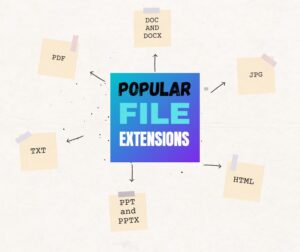 As kids work their way through the education system, they will use different types of documents for their projects. Therefore, it is important that children learn about the popular types of file extensions early on.
As kids work their way through the education system, they will use different types of documents for their projects. Therefore, it is important that children learn about the popular types of file extensions early on.
A file extension is the suffix used at the end of a file name to show what type of computer file is being used. The suffix also implies what program can be used to read the content of the file. Here are the most popular file extensions that kids should learn about.
DOC and DOCX
There is no actual difference between DOC and DOCX. Both are native formats of Microsoft Word, which is one of the most commonly used file types used for school projects and beyond. Whether DOC or DOCX is used is simply dependent on the version of Microsoft Office being used. DOC and DOCX files can contain text, images, tables, and other elements. The file type is perfect for writing essays and presenting graphics. Once a DOC or DOCX file has been saved, users can easily edit it in a Word program.
The PDF file extension is used for documents created in the PDF file format. PDFs are so popular because they maintain the formatting used to create the document. A PDF can contain text, images, tables, graphs, 3D drawings, and other elements. Due to the formatting being maintained, the elements of a PDF document appear richer and more presentable, making them ideal for school projects. PDFs have many benefits, but users can often not edit them directly unless they have a specific Adobe program. However, you can convert PDFs into other file types, such as DOC or JPG, by using an online tool. For instance, with PDF Simpli, you can convert a PDF into an editable JPG picture file in an instant.
Share this:
- Click to share on Facebook (Opens in new window) Facebook
- Click to share on X (Opens in new window) X
- Click to share on LinkedIn (Opens in new window) LinkedIn
- Click to share on Pinterest (Opens in new window) Pinterest
- Click to share on Telegram (Opens in new window) Telegram
- Click to email a link to a friend (Opens in new window) Email
- More

